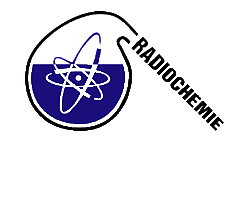Speaker
Dr
Stefan Neumeier
(Forschungszentrum Jülich GmbH)
Description
The disposal of high level radioactive waste is one of the most pressing and demanding challenges. With respect to long-term safety aspects of geological disposal, the minor actinides (MA) such as Am, Cm and Np and long-lived fission products such as 35Cl, 135Cs, 79Se, 90Sr and 129I may be of particular concern due to their long half-lives, their high radiotoxicity and mobility in a repository system, respectively. Ceramic waste forms for the immobilisation of these radionuclides have been investigated extensively in the last decades since they seem to exhibit certain advantages compared to other waste forms (incl. borosilicate glasses and spent fuel) such as high loadings and chemical durability. Currently, most on-going nuclear waste management strategies do not include ceramic waste forms. However, it is still important to study this option, e.g. with respect to specific waste streams and certain constraints regarding deep geological disposal.
In the present communication we report on the research program in Jülich regarding ceramic waste forms for the conditioning of MA. It is based on fundamental science and follows an integral approach that covers the separation of elements or elemental groups with similar chemical properties from a waste stream by liquid/liquid extraction as well as the immobilisation in ceramic materials as hosts. The research focuses on single phase ceramics such as Monazites and Zirconates with Pyrochlore structure and includes:
1.) Development and optimisation of synthesis routes suitable for immobilisation of MA into ceramic waste forms and the handling of radionuclides such as sol-gel route, hydrothermal synthesis and co-precipitation,
2.) structural and microstructural characterisation using state of the art spectroscopic (Raman, TRLFS, EXAFS), diffraction (powder and single crystal XRD) [3] and microscopic (SEM, FIB/TEM) techniques,
3.) determination of thermodynamic data (calorimetry) and reactivity under conditions relevant to geological disposal, in particular with respect to leaching/corrosion in aqueous environments (static & dynamic dissolution experiments on powders and pellets) as well as
4.) studies on radiation damages (irradiation with α-particles and/or heavy ions, and incorporation of short-lived actinides such as 238Pu, 241Am or 244Cm).
Finally, a fundamental understanding of the long-term behaviour on the atomic scale will help to improve the scientific basis for the safety case of deep geological disposal concepts using ceramic materials.
Primary author
Dr
Stefan Neumeier
(Forschungszentrum Jülich GmbH)
Co-authors
Dr
Andrey Bukaemskiy
(Forschungszentrum Jülich GmbH)
Prof.
Dirk Bosbach
(Forschungszentrum Jülich GmbH)
Dr
Felix Brandt
(Forschungszentrum Jülich GmbH)
Dr
Giuseppe Modolo
(Forschungszentrum Jülich GmbH)
Mrs
Julia Heuser
(Forschungszentrum Jülich GmbH)
Mrs
Sarah Finkeldei
(Forschungszentrum Jülich GmbH)
Mrs
Yulia Arinicheva
(Forschungszentrum Jülich GmbH)

